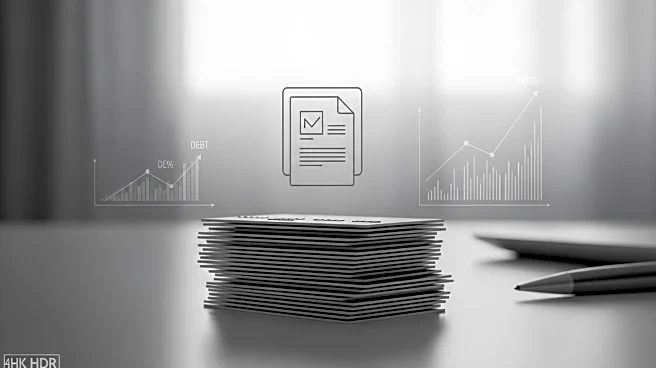What's Happening?
NPR has introduced a new newsletter series aimed at helping Americans manage and reduce their credit card debt. This initiative comes in response to the rising credit card balances in the United States, which reached a record high of $1.21 trillion in the second quarter of 2025, marking a 5.87% increase from the previous year. The newsletter, part of NPR's Life Kit, offers a month-long series of weekly emails providing strategies to create effective credit card payment plans. Financial educator Rita-Soledad Fernández Paulino emphasizes the importance of setting aside significant cash to pay down balances, suggesting that rethinking spending habits and finding additional income sources are crucial steps. The series aims to equip subscribers with tools to reframe their relationship with debt, slow its growth, and make informed decisions about which debts to prioritize.
Why It's Important?
The introduction of this newsletter is significant as it addresses the growing financial burden of credit card debt on American households. With interest rates often around 20%, credit card debt can severely impact financial stability, making it essential for individuals to find effective ways to manage and reduce their debt. By providing practical advice and strategies, NPR's initiative could help many Americans regain control over their finances, potentially leading to improved economic well-being. This effort also highlights the broader issue of financial literacy and the need for accessible resources to help individuals navigate complex financial challenges.
What's Next?
Subscribers to the newsletter can expect to receive weekly guidance on managing their credit card debt, with tips on budgeting and prioritizing payments. As the series progresses, it may prompt further discussions on financial education and the development of additional resources to support debt management. Stakeholders such as financial institutions and policymakers might also take note of the growing demand for financial literacy programs, potentially leading to more widespread initiatives aimed at reducing consumer debt.










